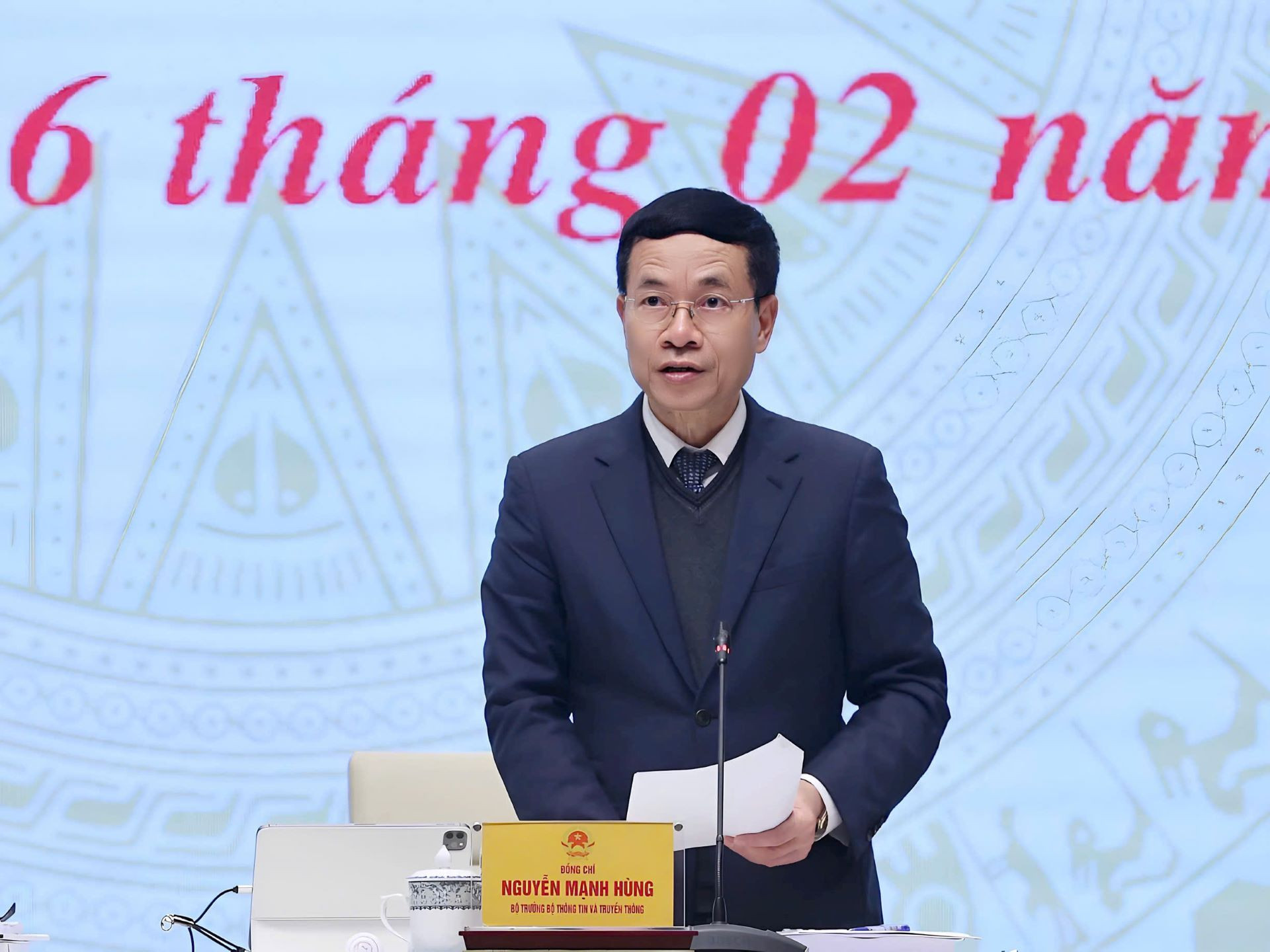
With traditional growth drivers nearly reaching the critical point, it is crucial that digital transformation and the digital economy become the new drivers for the country's growth. Vietnam obtained a growth rate of 7 percent with traditional drivers, but it will only be able to exceed the 7 percent rate with new driving forces such as science and technology, innovation, digital transformation, and a digital economy.
Minister of Information and Communications Nguyen Manh Hung spoke at the 10th session of the National Digital Transformation Committee on the digital transformation process and the 2024 Plan 06 implementation on February 6, 2025. Below is his speech:
Vietnam is aiming for higher average income status by 2030, planning to join the top 100 countries in the world in income per capita. To reach that end, its digital infrastructure, technology, industry, and transformation should proceed and progress faster, which means it needs to join the global top 50 by 2030 under these criteria, or double the economic ranking.
In telecommunications, Vietnam stands 72nd in the world, jumping by 36 grades, from 108th in 2018 to 72nd six years later. Joining the top 50, or top 40 globally, by 2030 is within reach.
For data infrastructure, Vietnam is among the top 60 and may be listed itself among top 30 by 2030.
In cybersecurity, Vietnam ranks highly at 17th worldwide, with a goal to reach the global top 10.
In terms of digital technology industry, Vietnam has annual revenue of over $150 billion and a growth rate of 15 percent, making Vietnam among the top 20, and joining the top 15 in the near future.
Vietnam ranks 41st in the ratio of digital economy to GDP. In 2024, digital economy grew by over 20 percent, accounting for more than 18 percent of GDP. It is expected that digital economy will account for 30-35 percent of GDP by 2030, allowing Vietnam to join the global top 30.
For e-government and digital government, Vietnam ranked 71st in 2024, a 15 spot promotion after two years. Vietnam can join the global top 50 globally in e-government and digital government by 2028 and top 40 by 2030.
Party Committee Secretary General To Lam, on behalf of the Politburo, has issued Resolution 57 on breakthroughs in the development of science and technology, innovation, and national digital transformation. This is an important thematic resolution which shows revolutionary solutions, likened to the ‘Khoan 10’ (household contracting mechanism, reform in agriculture) in terms of its importance.
While Khoan 10 helped the nation escape poverty, Resolution 57 will help Vietnam escape the middle-income trap. Khoan 10 liberated labor, whereas Resolution 57 focuses on liberating creativity.
Resolution 57 identifies science and technology, innovation and digital transformation as the three major pillars for the country's development in the new era.
Science and technology is fundamental, creating new knowledge and new technologies. Innovation is the driving force that transforms new knowledge and technologies into novel ideas and solutions. Innovation will help turn research outcomes into new products, services, and processes to yield practical socio-economic development values.
Digital transformation involves transitioning all activities into a digital environment, digitizing the physical world into a new "digital space." It offers digital platforms, tools, data, and digital connectivity to accelerate and extend the application of science and technology and innovation.
Digital transformation creates a new frontier where science and technology and innovation can thrive. It is full of favorable conditions enabling individuals to harness science and technology to engage in innovation.
Digital transformation fosters an environment and provides tools for rapidly turning innovative ideas and solutions into reality.
Studies indicate that digital transformation can contribute up to 3 percent to annual GDP growth in developing countries.
Traditional growth drivers have reached their limits, and, therefore, Vietnam needs new drivers, such as digital transformation and digital economy. Accelerating digital transformation now is crucial for robust economic growth.
In line with this vision, the National Digital Transformation Committee will enact its 2025 action plan.
First, setting high objectives to foster breakthrough solutions and identify talented individuals, sparking significant development.
Second, tasks must be clear and quantitative.
Third, assigning responsibilities to the units’ leaders.
Fourth, task assignments will be associated with resource allocation for implementation.
Fifth, developing tools for online quarterly and annual performance measurement.
Sixth, performance outcomes will be considered as a basis for assessing heads’ capability.
Nguyen Manh Hung
Minister of Information and Communications


